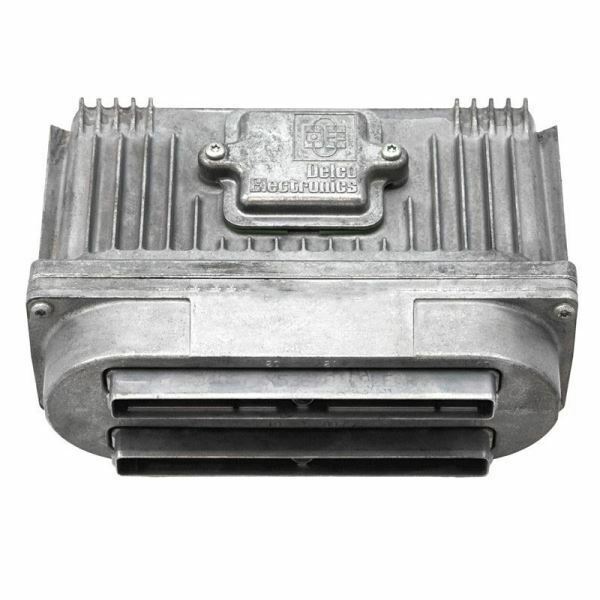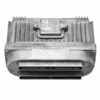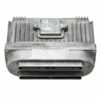Restore Peak Performance to Your 1997 GM Vehicle
Is your 1997 Pontiac Bonneville, Grand Prix, or another GM vehicle with the legendary 3.8L V6 engine running poorly? If you’re experiencing frustrating issues like stalling, erratic shifting, a persistent check engine light, or a no-start condition, the problem may lie with a failing Powertrain Control Module (PCM). As the central computer of your vehicle, the PCM is responsible for managing everything from fuel delivery and spark timing to transmission behavior. When it fails, the symptoms can be widespread and difficult to diagnose. This replacement PCM, part number 19109047, is the definitive solution to get your car back on the road and running like new.
Is Your Vehicle Showing Signs of a Failing PCM?
A faulty engine computer can manifest in numerous ways. Before you spend hundreds on replacing sensors and other components, check if your vehicle is exhibiting any of these classic symptoms of PCM failure:
- ✔ Unexplained Check Engine Light (CEL), especially with codes for internal module errors.
- ✔ Rough, erratic, or surging idle.
- ✔ A noticeable decrease in fuel economy.
- ✔ Harsh, delayed, or incorrect automatic transmission shifting.
- ✔ Engine hesitation, stumbling, or stalling during acceleration or at a stop.
- ✔ Intermittent or complete no-start condition where the engine cranks but won’t fire.
- ✔ Inability for a diagnostic scan tool to communicate with the module.
From the Diagnostic Bay
We once had a 1997 Buick Riviera with the supercharged 3.8L come into the shop with a maddening issue: it would randomly stall at stoplights, but with no warning and no stored trouble codes. The owner had already replaced the ignition control module and crank sensor. We checked fuel pressure, wiring, and grounds—everything was perfect. The problem was so intermittent we couldn’t reliably replicate it. On a hunch, we hooked a lab scope to the PCM’s main power and ground circuits and drove the car. Just before a stall, we saw a tiny, erratic voltage fluctuation originating from inside the module itself. The PCM was failing internally but not in a way that would set a code. A new, programmed PCM fixed the issue for good. It’s a reminder that these internal failures can be the trickiest to pinpoint.
The Solution: A VIN-Programmed 1997 Bonneville PCM
This isn’t a generic, one-size-fits-all part from a local auto parts store. To function correctly, the PCM must be programmed specifically for your vehicle. We handle this critical step for you. When you order, you provide us with your vehicle’s VIN. We then use that information to flash the module with the latest GM-certified software calibration for your exact make, model, engine, transmission, and factory options (like the supercharged engine option). This ensures your 1997 Bonneville PCM or the module for your Camaro, Regal, or Monte Carlo works perfectly right out of the box, restoring original factory performance and efficiency.
Simple Installation and Guaranteed Compatibility
Installation is a straightforward process for the DIY mechanic. The PCM is typically located in the engine bay, often within the air filter housing, and is held in place by a few bolts or clips. Simply disconnect the vehicle’s battery, unplug the wiring harnesses from your old module, swap in the new one, and reconnect everything. In many cases, a simple security relearn procedure is all that’s needed to sync the new computer with your car’s anti-theft system—a process you can do yourself in about 30 minutes with just your ignition key.
This module is a direct replacement for part numbers 19109047 and 16227797 and fits a wide range of 1997 GM models, including:
- Pontiac Bonneville (3.8L w/supercharger)
- Pontiac Grand Prix (3.8L w/supercharger)
- Pontiac Firebird (3.8L)
- Chevrolet Camaro (3.8L)
- Chevrolet Monte Carlo (3.4L)
- Chevrolet Lumina (3.4L)
- Buick Regal (3.8L w/supercharger)
- Buick Park Avenue (3.8L)
- Buick Riviera (3.8L)
- Oldsmobile Eighty Eight (3.8L w/supercharger)
Frequently Asked Questions
What exactly does the Powertrain Control Module do?
The PCM is the central computer for your engine and transmission. It processes data from dozens of sensors to control fuel injection, ignition timing, emission systems, and automatic transmission shift points, ensuring optimal performance, fuel economy, and low emissions.
Why is providing my VIN so important?
Your Vehicle Identification Number (VIN) is like your car’s DNA. It allows us to load the exact, correct software calibration for your specific vehicle’s make, model, engine, transmission, and factory options. This ensures perfect compatibility and function right out of the box, avoiding potential performance issues.
Is this a simple DIY installation?
Yes, for most individuals with basic mechanical skills. The PCM is typically easy to access in the engine bay. After disconnecting the battery, you simply unplug the old module and plug in the new one. A security relearn procedure may be required, which involves a simple key-cycling process you can do at home.
Will this module fix my specific problem?
If your vehicle’s issues have been correctly diagnosed as a faulty PCM, this part is the definitive solution. It resolves common symptoms like stalling, poor performance, and certain check engine light codes related to internal module failure. We always recommend proper diagnostics before ordering any part.
What is the security relearn procedure?
For many GM vehicles of this era, it’s a simple process. It typically involves turning the ignition key to the ‘ON’ position (without starting the engine) for 10-15 minutes, then ‘OFF’ for 10 seconds, and repeating this cycle three times. This allows the new PCM to sync with your vehicle’s anti-theft system.


